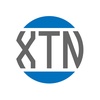In the rapidly evolving landscape of healthcare, the integration of pharmacogenetic data into patient care is heralding a new era of personalized medicine. This innovative approach tailors medical treatment to the individual characteristics of each patient, with a particular focus on how genetic makeup affects the body's response to drugs. This article delves into the transformative potential of pharmacogenetic data in empowering patients through more informed consent, thereby enhancing the efficacy and safety of medical treatments.
The Genesis of Pharmacogenetics
Pharmacogenetics, a portmanteau of pharmacology and genetics, is the study of how genes affect a person's response to drugs. This field of science combines pharmacology, the branch of medicine concerned with the uses, effects, and modes of action of drugs, with genomics, the study of genes and their functions. The ultimate goal of pharmacogenetics is to optimize drug therapy, with respect to the individuals' genotype, to ensure maximum efficacy with minimal adverse effects.
Informed Consent in Healthcare
Informed consent is a fundamental principle in healthcare, ensuring that patients are fully aware of the risks, benefits, and alternatives to any medical treatment or procedure. It is a process that requires clear communication between healthcare providers and patients, enabling patients to make knowledgeable decisions about their care. However, traditional informed consent processes often lack personalized insights that could significantly impact patient outcomes.
The Role of Pharmacogenetic Data
Pharmacogenetic data can revolutionize the informed consent process by providing personalized insights into how a patient might react to certain medications based on their genetic makeup. This data can predict the efficacy of a drug, the likelihood of adverse reactions, and the optimal dosage for an individual, thereby significantly reducing the trial and error often associated with prescribing medications.
Empowering Patients with Personalized Insights
Integrating pharmacogenetic data into the informed consent process empowers patients by providing them with a clearer understanding of their treatment options. This personalized approach helps patients make more informed decisions about their healthcare, considering not just the general risks and benefits of a treatment but also their unique genetic predisposition to certain medications.
Case Studies and Clinical Evidence
Numerous studies have illustrated the benefits of incorporating pharmacogenetic data into patient care. For example, research on the genetic variations affecting the metabolism of drugs like warfarin, a commonly prescribed anticoagulant, has led to more personalized dosing regimens that significantly reduce the risk of bleeding complications or treatment failure. Similarly, genetic testing for variations in the CYP2C19 gene, which affects the metabolism of certain antiplatelet drugs, can help guide treatment decisions in patients undergoing coronary stent placement.
Challenges and Considerations
Despite its promising potential, the integration of pharmacogenetic data into routine clinical practice faces several challenges. These include the cost and accessibility of genetic testing, the need for healthcare professionals to be trained in genomics, and ethical considerations related to genetic privacy and discrimination. Moreover, the clinical relevance of genetic variations can vary widely among different populations, necessitating a careful and nuanced approach to applying pharmacogenetic insights.
The Future of Informed Consent
As pharmacogenetic testing becomes more accessible and affordable, its integration into the informed consent process is likely to become more commonplace. This shift will require ongoing education for both patients and healthcare providers, as well as thoughtful consideration of the ethical implications of genetic data in healthcare. However, the potential benefits for patient care and empowerment are immense, offering a more personalized, effective, and safe approach to medical treatment.
Holon Solutions: Revolutionizing Healthcare with Human-Centric Technology
Rekindling the Human Element in Healthcare
At the heart of Holon Solutions lies a deep-seated commitment to reinvigorate the human aspect of healthcare services. Drawing inspiration from the holistic concept of a "holon," the company champions the idea that healthcare solutions should not only function independently but also synergistically within the larger healthcare system. This philosophy is the driving force behind Holon's mission to foster stronger human connections through cutting-edge technology, bridging the gap between clinical efficiency and compassionate care.
Pioneering a Sophisticated Platform
Holon Solutions transcends traditional healthcare technology boundaries by offering a platform that simplifies complex processes through tailored tools. By employing proprietary sensor technology, Holon aggregates and integrates patient data from a myriad of sources into bespoke clinical workflows. This strategic automation liberates healthcare professionals from time-consuming tasks, addressing the prevalent issue of burnout and redirecting focus toward superior patient care.
Streamlining Healthcare with Smart Technology
What sets Holon apart in the competitive healthcare technology landscape is its unwavering dedication to alleviating the administrative burdens that healthcare providers endure. The company leverages intelligent technology and user-friendly design to introduce bespoke tools and services that not only yield tangible business benefits but also significantly enhance human interactions and clinical outcomes.
Fostering Professional Fulfillment with the Holon Community
The Holon Community embodies the company's approach to optimizing healthcare processes, ensuring the seamless delivery of patient data across the care continuum. This community-centric model is designed to integrate effortlessly with existing healthcare infrastructures, enriching professional satisfaction and allowing more time for patient-focused care.
Driving Innovation in Healthcare
Innovation is at the core of Holon's ethos, as evidenced by its dynamic Innovation Lab. Within this creative space, Holon's teams are encouraged to push boundaries and harness technology to emphasize the human side of healthcare. The company's guiding principles—bold innovation, simplification, empathy, agility in a SaaS environment, and the humanization of interactions—fuel the development of groundbreaking solutions that reflect Holon's commitment to transforming the healthcare experience.
Conclusion: A Vision for a More Human Healthcare
Holon Solutions' relentless pursuit of enhancing healthcare experiences is evident in its efforts to combat professional burnout, reduce administrative overhead, and improve patient care. With a steadfast vision to infuse healthcare innovation with a more humane touch, Holon is not just reshaping the landscape of healthcare technology; it is redefining what it means to care in the modern medical era. As Holon continues to innovate and expand its offerings, the future of healthcare looks not only more efficient but also more compassionate, heralding a new era where technology and humanity walk hand in hand.


No comments yet